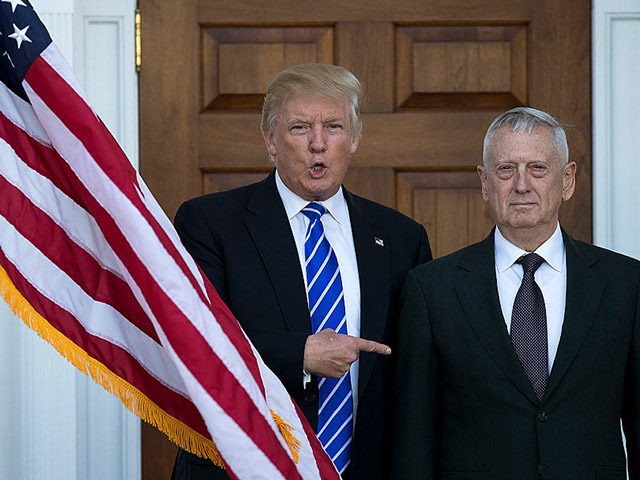Americans may soon find themselves living in a dictator-ruled autocracy, courtesy of President-elect Donald Trump’s appointments of retired high-ranking military officers to top national security positions within his administration, claims an opinion article published in the Washington Post (WaPo).
President-elect Trump has expressed disdain towards dictatorships, calling the late Cuban leader in a statement “a brutal dictator who oppressed his own people for nearly six decades. Fidel Castro’s legacy is one of firing squads, theft, unimaginable suffering, poverty and the denial of fundamental human rights.”
In an article published by the Post Monkey Cage blog, Peter White, a postdoctoral researcher at the Center for International Development and Conflict Management at the University of Maryland, compares Trump to a dictator for trying to appoint more military officers to top posts within his administration than previous presidents.
“In non-democracies, the military often acts as either as the dictator’s informal partner or as an autonomous political faction — roles which require military officers to be heavily involved in government,” writes White. “Non-democracies have military officers in national cabinets at more than three times the rate of democracies.”
The op-ed article fails to mention that the U.S. Constitution does not place any restrictions on who President-elect Trump can appoint to his administrations. The Senate does have to confirm the cabinet secretary posts.
So far, Trump has officially appointed two high-ranking decorated retired warriors to be a part of his administration: retired Marine Gen. James “Mad Dog” Mattis as his secretary of defense and retired Army Lt. Gen. Michael Flynn as White House national security adviser.
Meanwhile, he is considering bringing in three others: border security hawk retired Marine Gen. John Kelly for secretary of homeland security, former Army Gen. David Petraeus for secretary of state, and Navy Adm. Michael Rogers for director of national intelligence (DNI).
Other presidents have appointed retired high-ranking military officers to top posts within their administration. President George W. Bush appointed retired four-star Army general and former chair of the Joint Chiefs of Staff Colin Powell as secretary of state.
However, the number and placement of former military officers being considered by President-elect Trump is considered to be unprecedented.
White argues:
The United States, like most advanced democracies, has historically kept a relatively clear line between the civilian command that gives orders and the military that follows them. In fact, having three or four former high-ranking military officers in the top ranks of the administration would put the U.S. in the company of non-democracies like Thailand or Zimbabwe. Most healthy democracies — whether that’s Australia, Canada, Germany, or the United Kingdom — keep the military and civilian worlds quite separate.
The researcher goes on to point out that advanced democracies have no more than two military officers holding top positions in the executive branch.
White does not appear to be alone in his concern. In an editorial for the New York Times (NYT), Carol Giacomo notes:
Appointing too many generals would throw off the balance of a system that for good reason favors civilian leadership…
The United States has long warned other countries about the dangers to democracy of overrelying on the military in place of civilian leaders. If Mr. Trump fills his cabinet with generals, what kind of message will he send to the rest of the world?
In a news article, the Times claims the president-elect’s appointment of military general contradicts a “constitutionally enshrined principle” of civilian control of the military.
However, former Department of Justice (DOJ) official under George W. Bush Shannen Coffin, writing an opinion article for National Review, argues that statutory limitations on the president’s nomination power are unconstitutional.
The U.S. Constitution does not explicitly prohibit the president from appointing military officers to any executive branch position. “Congress has no role in deciding whom the president can nominate,” notes Coffin.
He does cite the 1947 legislation enacted when the U.S. Department of Defense replaced the War Department.
The law ultimately determined that the Secretary of Defense was to be appointed from “civilian life,” adding that no military officer could hold the post until after being separated from the armed forces for seven years.
Although Congress has the authority to issue a waiver, “this statutory limitation on the president’s power to appoint officers of his choosing is almost certainly unconstitutional,” writes Coffin. “The constitution vests the President with the sole authority to nominate executive officers of his choosing.”
Congress issued a waiver to the 1947 law when President Truman appointed five-star Army Gen. George C. Marshall to serve as Pentagon chief from 1950 to 1951.

COMMENTS
Please let us know if you're having issues with commenting.